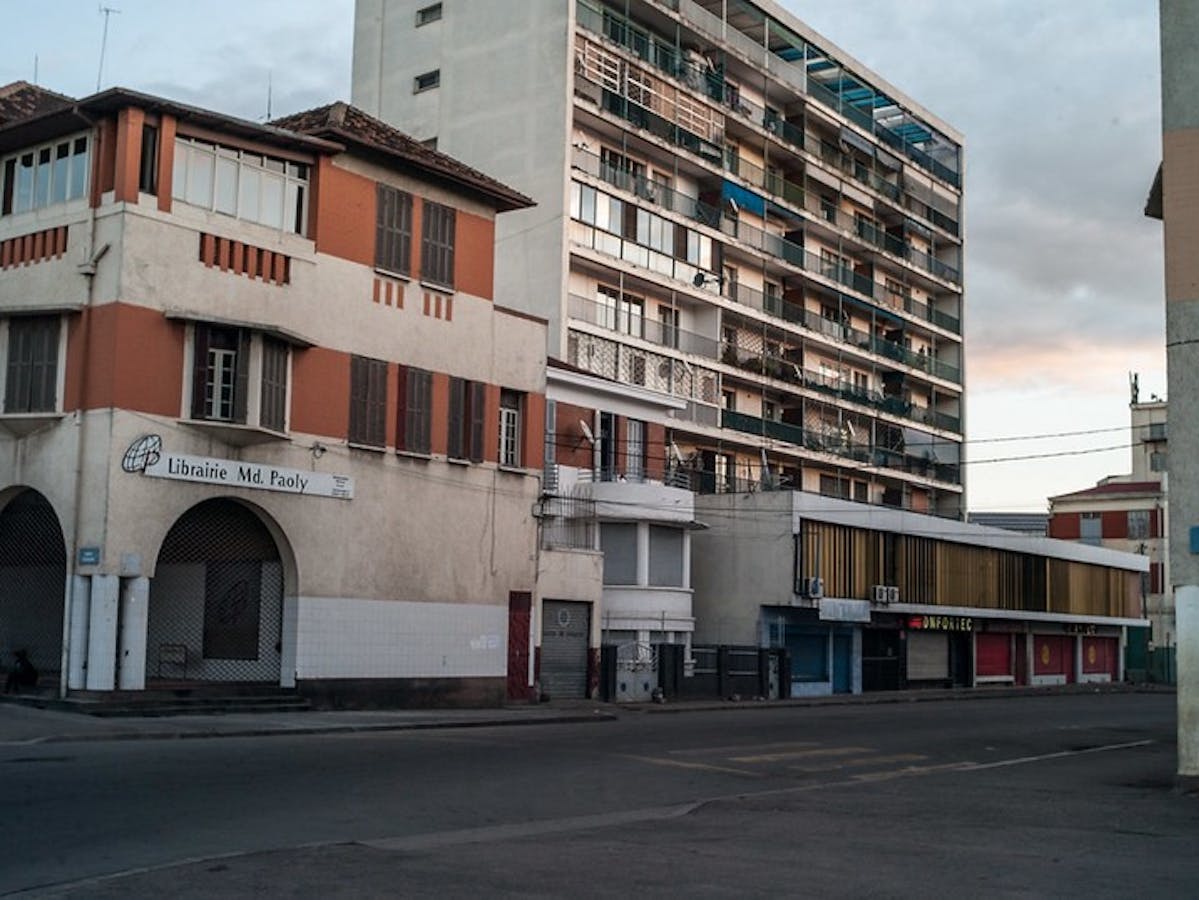As the world enters the second year of the COVID-19 pandemic, low- and middle-income countries are not much closer to recovery, and inequalities between countries persist and risk growing with the vaccine inequality we are witnessing today. According the International Monetary Fund’s (IMF) chief economist “recoveries are… diverging dangerously across and within countries, as economies with slower vaccine rollout, more limited policy support, and more reliance on tourism do less well”. This situation requires, more than ever, countries to boost their efforts to decrease inequalities for a fair and inclusive recovery.
In October 2020, Oxfam’s analysis made news around the world when we revealed that a stunning 84% of IMF COVID-19 loans were promoting austerity measures in the aftermath of the health crisis — a situation that would likely exacerbate existing inequalities. That analysis was based on IMF loans approved between March and September 2020. We have now updated our tracker and open-access dataset so that interested parties can continue to get an updated snapshot view of what each loan being approved contains with respect to pandemic- and recovery-related fiscal measures being promoted, and governance measures embedded in the loans. The IMF also resumed its surveillance work (Article IV consultations), which had been suspended for much of 2020, and we have included that relevant data in our tracker as well.
Over the past six months, the IMF approved an additional USD 18.6 billion in 18 new loans to 16 countries, raising the total amount of lending approved during the pandemic to USD 107 billion as of March 15 2021. Our review finds that of the 18 new loans, a whopping 93% of the funds have gone to Latin America and the Caribbean, 3% went to Sub-Saharan Africa, and 2% went to each of the Asia-Pacific region and North Africa, the Middle East and Central Asia region. Some of these loans came in the form of emergency financing while a few of them were in the form of more traditional loan programs with conditionality attached. As we did last year, we’ve now analyzed this latest set of loans to examine whether the IMF has changed course since our last check in. So, what did we find?
- Austerity-led recovery
We found that between September 2020 and March 2021, 17 of the 18 new loans explicitly promoted austerity measures in the aftermath of the pandemic, calling on countries to set various targets to limit public spending through deficit targets, fiscal discipline rules and others. For instance, in Guinea-Bissau the Fund recommended cutting the deficit from 7.6% of GDP in 2020 to 3% of GDP over the years 2021–2023. In light of the high uncertainty of growth recovery, these cuts could come at the expense of social spending, such as health, education and social protection. Indeed, when the pandemic began Guinea-Bissau spent only around 8% of its budget on health, well below the recommended 15% by the WHO. The results could be devastating. The IMF’s austerity proposals take different shapes across the various new loans:
Cutting or freezing wage bills: it calls for cutting or freezing the public sector wage bill in 7 of the 16 countries. Costa Rica has already started that process as part of its pandemic response to free up resources. In the period between the first and second IMF COVID19 loans to the country, the government froze public sector wages (except for police and healthcare workers), froze almost 5000 public vacancies, and eliminated over 2000 positions.
Regressive taxation: The Fund called for increased revenue collection through Value-Added Tax — a highly regressive tax — in 4 out of the 16 countries. In some countries like Panama the Fund suggested raising the VAT rate, while in others like Colombia, the IMF’s Article IV report recommended removing VAT exemptions.
Pensions and social security reforms: It recommended pensions and social security reforms for three countries and for reducing public spending in 7 out of the 16 countries including measures to cut what is deemed nonpriority spending, such as in Benin, and capital expenditures like in Ecuador.
Looking at the complete picture over the past year, we can say that 93 of the IMF’s 109 COVID-19 loans — 85% — are pushing countries towards austerity once the crisis recedes.
2. Austerity sooner than later
What is more worrying about this new batch of loans is that the IMF appears to be keen on countries reverting to fiscal consolidation very soon. People and economies around the world, especially in low and lower middle-income countries, are still in the eye of the crisis. Yet despite this, many of these loans assume the crisis will abate soon despite not hitting the mark before. In May 2020, IMF staff projected that the shock of the pandemic in Benin would wear off at the end of the same year, calling on the government to revert to fiscal consolidation. At the beginning of 2021, Benin requested assistance through emergency financing. Nevertheless, the Fund still called on the government to fiscally consolidate this year to achieve deficit targets. Due to the extremely limited fiscal space, South Sudan and Tonga have endured fiscal consolidation even during the pandemic. Indeed, we saw for the most part (14 out of 16 countries) the IMF calling for a return to fiscal consolidation in as early as 2021 or 2022. It is worth emphasizing that these are recent loan documents, all approved in the past six months.
3. Lack of progressive measures
When we first issued our warning regarding the push towards austerity last October, the Fund stated that boosting revenues through progressive tax measures was one of the top three priorities that the IMF had set for countries to get their finances back on track. Yet, we have just not seen this to be the case. Only Costa Rica has been encouraged to improve luxury property taxation. In the rare cases where the IMF advised direct tax measures, they typically involved reforming personal income taxation (PIT). For instance, in Ecuador the Fund advised to improve progressivity around middle income brackets without touching higher income brackets. In Barbados, the government embarked on a gradual decrease of the PIT while compensating revenue loss by broadening the VAT base. These measures risk being regressive and increasing inequality. Rather than promoting redistributive tax measures that would reduce inequalities, the IMF is instead encouraging countries to re-allocate spending that is already people-centered such as public wage bills, in order to fund social spending. These measures could be avoided if the IMF were to take its own advice and call on countries to tax the rich to fund social spending as it recommended in the latest fiscal monitor.
4. Encouraging signs, however…
Despite the worrying trends that we highlighted above, a few encouraging measures ought to be highlighted. The IMF continued to introduce flexibility clauses in non-emergency loans, such as for Afghanistan and Costa Rica. These clauses should allow countries to relax adherence to conditionality on spending limits and allow them to increase social spending in case the pandemic worsens. In addition to that, nine loan agreements have stressed the importance of protecting social spending when fiscal consolidation sets place. However, that language remains quite vague while the language concerning fiscal consolidation and spending cuts are very explicit and clear. While the IMF asks governments to protect social spending, we see, in the same documents, the Fund advising governments to roll back pandemic related social spending once “the crisis abates”. This is very worrying considering most countries were extremely unprepared to face the crisis with severely insufficient social spending going into the pandemic. The Commitment to Reducing Inequality index showed that only 26 out of 158 countries were spending a recommended 15 percent of their budgets on health prior to the pandemic, and in 103 countries at least a third of workers lacked basic labor rights and protections. If the crisis has taught us anything, it is that we need to massively invest in public services and social protection.
The IMF’s emergency financial support has been crucial for struggling countries to fight the pandemic. But despite the Fund’s call for increased social spending to respond to the pandemic, it is risking pushing lower income countries into another decade of austerity and destitution through calling for fiscal consolidation once the crisis abates. This model cannot and will not offer countries a “fair shot” at recovery.
Photo: World Bank/Henitsoa Rafaela

